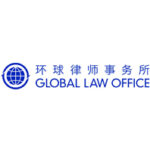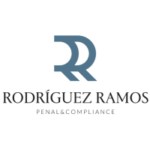-
What is the legal framework (legislation/regulations) governing bribery and corruption in your jurisdiction?
The Foreign Corrupt Practices Act [FCPA], enacted in 1977, governs bribery of foreign public officials and representatives of government-controlled companies. 15 USC sections 78dd-1, et seq. In general, the FCPA prohibits US issuers and their agents, US corporate entities, US citizens, nationals or residents, and foreign nationals while in the United States, from ‘corruptly’ paying, promising, authorising or offering ‘anything of value’ to a foreign public official to ‘influenc[e] any act or decision of such foreign official in his official capacity’ or to secure an improper business advantage. 15 USC sections 78dd-1, 78dd-2, and 78dd-3. The FCPA also includes accounting provisions, which require US issuers to make and keep accurate books, records and accounts and to implement internal accounting controls. 15 USC section 78m.
On February 10, 2025, President Trump issued an Executive Order pausing criminal enforcement of the FCPA for at least 180 days. During the pause, the US Attorney General is to review guidelines and policies governing FCPA investigations and enforcement and issue updated versions, cease any new FCPA investigations or enforcement actions, unless the Attorney General believes an exception should be made, and review existing FCPA investigations or enforcement actions and ‘take appropriate action’ in light of the underlying pause. The United States Securities and Exchange Commission [SEC], which has civil enforcement authority under the FCPA, has similarly paused FCPA enforcement. As a result of the Executive Order, the United States Department of Justice [DOJ] has dropped FCPA charges against several defendants. However, despite the Executive Order, the FCPA is still valid law. Additionally, the FCPA’s statute of limitations is longer than President Trump’s four-year term. In particular, anti-bribery violations have a five-year statute of limitations. As such, companies within the jurisdiction of the FCPA should continue enforcement of their own codes of conduct and policies prohibiting bribery and corruption, as well as continue to conduct internal investigations of any breaches thereof.
Several other federal criminal statutes can be implicated in anti-bribery investigations, such as the Travel Act, federal money laundering laws, and federal mail and wire fraud statutes. The Travel Act prohibits ‘travels in interstate or foreign commerce’, or use of ‘the mail or any facility in interstate or foreign commerce, with the intent to . . . distribute the proceeds of any unlawful activity’ or ‘promote, manage, establish, carry on, or facilitate the promotion, management, establishment, or carrying on, of any unlawful activity’. 18 USC section 1952. Violations of the FCPA, as well as state laws prohibiting private commercial bribery, are included in the Travel Act’s definition of ‘unlawful activity’. Federal money laundering laws prohibit certain financial transactions using proceeds from specified unlawful activities, including FCPA violations. Mail and wire fraud statutes, which prohibit use of the mail or interstate telephonic, electronic or other wire communication to further any fraudulent scheme to deprive another of money or property, may also be implicated—for example, where a company executive with fiduciary duties is alleged to have failed to disclose bribery as part of a scheme to induce investment. 18 USC sections 1341 and 1343.
18 USC section 201 prohibits the bribery of public officials. The law criminalizes two sets of actors for participating in two different types of payments. Section 201(b) forbids any person from ‘directly or indirectly, corruptly’ giving or offering ‘anything of value’ to a public official intending to ‘influence any official act’ or otherwise induce them to commit fraud or otherwise violate their official duties. It also forbids public officials from receiving ‘anything of value’ in exchange for that influence. Section 201(c) forbids individuals from paying—and public officials from accepting—gratuities in exchange for the execution of their official duties, without the requirement that the defendant have acted with corrupt intent. Another similar statute, 18 USC section 666, specifically criminalizes bribery affecting programs that receive a certain minimum amount of federal funds.
Lastly, in 2023, the US adopted the Foreign Extortion Prevention Act [FEPA], which ‘criminalizes the “demand side” of foreign bribery by prohibiting foreign officials from demanding, seeking, receiving, accepting, or agreeing to receive or accept anything of value from certain individuals and entities.’ DOJ Manual, 9-47.000. While the FEPA does not amend the FCPA, but instead amends the US domestic bribery statute (18 USC section 201), it is similar to the FCPA in some respects. Like the FCPA, FEPA applies to bribes or bribe solicitations involving a US issuer, US domestic concern, or any person while in the territory of the US. Also similar to the FCPA, the FEPA requires that the demand by a foreign official be in exchange for an improper benefit. Specifically, FEPA prohibits a demand in return for ‘being influenced in the performance of any official act’; ‘being induced to do or omit to do any act in violation of the official duty of such foreign official or person’; or ‘conferring any improper advantage, in connection with obtaining or retaining business for or with, or directing business to, any person.’ 18 USC section 201(b).
-
Which authorities have jurisdiction to investigate and prosecute bribery and corruption in your jurisdiction?
The principal federal prosecuting agencies in the US are the DOJ and the SEC. The DOJ has authority to bring criminal prosecutions while the SEC has authority to bring civil enforcement actions. In cases involving US issuers or their executives, employees or agents, a company or individual may be subject to parallel investigations by the DOJ and SEC. In criminal investigations, the DOJ works in conjunction with an investigating agency, such as the Federal Bureau of Investigation or the Department of Homeland Security. The Commodity Futures Trading Commission [CFTC] announced, in 2019, an initiative to investigate and hold to account companies and individuals engaged in commodities-related bribery. Under this initiative, the CFTC works in partnership with the DOJ and SEC to investigate foreign bribery and prosecute overseas corruption offenses, and announced that commodities companies that self-report violations of the Commodity Exchange Act involving foreign corrupt practices could receive declinations. CFTC, Enforcement Advisory [6 March 2019]. The CFTC announced its first foreign corruption resolution in December 2020 in a matter coordinated with the DOJ against Vitol Inc., an energy and commodities trading firm. In the Matter of Vitol Inc., CFTC Docket No. 21-01 [3 December 2020].
-
How is ‘bribery’ or ‘corruption’ (or any equivalent) defined?
Under the FCPA, bribery is defined as: (a) making a payment or offering, authorising or promising a payment or anything of value, (b) to a foreign public official, foreign political party or party official, or candidate for foreign political office, directly or indirectly, (c) with a corrupt intent, (d) ‘for purposes of (i) influencing any act or decision of such foreign official in his official capacity, (ii) inducing such foreign official to do or omit to do any act in violation of the lawful duty of such official’, (iii) ‘securing any improper advantage’ or (iv) ‘inducing such foreign official to use his influence with a foreign government or instrumentality thereof to affect or influence any act or decision of such government or instrumentality’, (e) in order to obtain or retain business or direct business to any person. Section 201 defines bribery similarly (giving, offering or promising ‘anything of value . . . to influence an official act’ or ‘public official’), but the United States Supreme Court narrowed the scope of what constituted an ‘official act’ in 2016 in McDonnell v. United States, 136 S. Ct. 2355, 2371-72 (2016), to instances where there is some “specific and focused” pending act or proceeding before the official.
When adopting the FCPA, Congress clarified what “corruptly” means under the FCPA: ‘The word “corruptly” is used in order to make clear that the offer, payment, promise, or gift, must be intended to induce the recipient to misuse his official position; for example, wrongfully to direct business to the payor or his client, to obtain preferential legislation or regulations, or to induce a foreign official to fail to perform an official function. The word “corruptly” connotes an evil motive or purpose such as that required under 18 U.S.C. 201(b) which prohibits domestic bribery. As in 18 U.S.C. 201(b), the word “corruptly” indicates an intent or desire wrongfully to influence the recipient. It does not require that the act [be] fully consummated or succeed in producing the desired outcome.’ DOJ and SEC, A Resource Guide to the US Foreign Corrupt Practices Act, Second Edition at 13 [2020] (citing H.R. Rep. No. 95-640, at 7). The Senate Report also defines the term: ‘The word “corruptly” is used in order to make clear that the offer, payment, promise, or gift, must be intended to induce the recipient to misuse his official position in order to wrongfully direct business to the payor or his client, or to obtain preferential legislation or a favorable regulation. The word “corruptly” connotes an evil motive or purpose, an intent to wrongfully influence the recipient’. S. Rep. No. 95-114, at 10.
-
Does the law distinguish between bribery of a public official and bribery of private persons? If so, how is 'public official' defined? Is a distinction made between a public official and a foreign public official? Are there different definitions for bribery of a public official and bribery of a private person?
The FCPA prohibits the bribery of a foreign public official and does not reach bribery of a private person unless that private person is acting on behalf of a foreign official. A ‘foreign official’ is defined as ‘any officer or employee of a foreign government or any department, agency, or instrumentality thereof, or of a public international organisation, or any person acting in an official capacity for or on behalf of any such government or department, agency, or instrumentality, or for or on behalf of any such public international organisation’. 15 USC section 78dd-1. The FCPA does not distinguish between low-ranking and high-level officials of foreign governments—any such foreign government employee or official may fall within the definition of ‘foreign official’. Because ‘foreign official’ includes those acting on behalf of any foreign governmental ‘department, agency, or instrumentality’, the term has been interpreted broadly by US enforcement authorities to include employees and agents of state-owned enterprises. DOJ and SEC, A Resource Guide to the U.S. Foreign Corrupt Practices Act, Second Edition at 19-22 [2020]. To determine whether a foreign entity is an ‘instrumentality’ of a foreign government under the FCPA, a fact-specific inquiry is made into whether the government controls the entity and whether the entity performs a government function. In United States v. Esquenazi, 752 F3d 912 (11th Cir. 2014), the US Court of Appeals for the Eleventh Circuit sought to determine the contours of the term ‘instrumentality’ in the FCPA and provided a nonexhaustive list of factors to consider: (a) Whether the government controls the entity (i) How is the entity formally designated by the foreign government? (ii) Does the foreign government own a majority interest in the entity? (iii) Can the foreign government hire and fire the entity’s principals? (iv) Do the entity’s profits, if any, go directly into the foreign government’s fisc? (v) Does the foreign government fund the entity, if necessary? (b) Whether the entity performs a government function (i) Does the entity have a monopoly over the function it carries out? (ii) Does the government subsidize the costs associated with the entity’s provision of services? (iii) Does the entity provide services to the public at large in the foreign country? (iv) Do the foreign government and the public perceive the entity to be performing a governmental function? United States v. Esquenazi, 752 F. 3d 912, 926 (11th Cir. 2014), cert. denied, 135 S. Ct. 293 (2014); accord United States v. Duperval, 777 F. 3d 1324 (11th Cir. 2015).
-
Who may be held liable for bribery? Only individuals, or also corporate entities?
Both individuals and corporate entities may be held liable for bribery of a foreign official. A corporate entity may be liable ‘when its directors, officers, employees, or agents, acting within the scope of their employment, commit FCPA violations intended, at least in part, to benefit the company’. DOJ and SEC, A Resource Guide to the US Foreign Corrupt Practices Act, Second Edition at 28 [2020]. In recent years, US government authorities have emphasised enforcement against individuals. In 2021, Deputy Attorney General Lisa Monaco updated the DOJ’s corporate criminal enforcement principles, which emphasises individual responsibility for corporate crimes as well as for the defendant corporation. Lisa Monaco, Corporate Crime Advisory Group and Initial Revisions to Corporate Criminal Enforcement Policies [28 Oct 2021]. When prosecuting corporations, the DOJ will focus on ‘a corporation’s entire criminal history’. Id. Lastly, the Monaco memorandum restores a prior DOJ policy that requires corporations to ‘provide to the Department all relevant facts relating to the individuals responsible for the misconduct’ to receive any cooperation credit. Id.; see also Deputy Attorney General Lisa O. Monaco Gives Keynote Address at ABA’s 36th National Institute on White Collar Crime [28 Oct. 2021], https://www.justice.gov/opa/speech/deputy-attorney-general-lisa-o-monaco-gives-keynote-address-abas-36th-national-institute. The SEC has similarly stated that individual liability is a fundamental aspect of FCPA enforcement.
-
What are the civil consequences of bribery and corruption offences in your jurisdiction?
Civil consequences of FCPA violations include the imposition of a fine of up to $25,597 per violation of the anti-bribery provisions, 15 USC section 78ff; 89 Federal Register 1970 [11 Jan 2024], an injunction prohibiting any act that violates or may violate the FCPA, requiring corporate entities to improve compliance programs and retain an independent consultant to advise on such programs, and disgorgement of ill-gotten gains plus prejudgment interest. For actions involving an individual, the SEC could also impose additional restrictions, including barring that individual from serving as an officer or director of an issuer for a specified period of time. Corporate violators of the FCPA may also face collateral consequences from civil enforcement actions, including ‘suspension or debarment from contracting with the federal government, cross-debarment by multilateral development banks, and the suspension or revocation of certain export privileges’. DOJ and SEC, A Resource Guide to the U.S. Foreign Corrupt Practices Act, Second Edition at 72-73 [2020].
-
What are the criminal consequences of bribery and corruption offences in your jurisdiction?
Criminal consequences for FCPA violations include the imposition of a fine of up to $2 million per violation of the anti-bribery provisions for corporations and other business entities and up to $250,000 for officers, directors, stockholders, employees and agents of such entities. 15 USC section 78ff; 18 USC section 3571(b)(3). In practice, fines are often higher because the Alternative Fines Act, 18 USC section 3571(d), provides for imposition of fines at, among other levels, twice the amount of the gross pecuniary gain or loss associated with the criminal violation. Individuals may face up to five years’ imprisonment per violation. 15 USC section 78ff. A corporate violator of the FCPA may face collateral consequences of a criminal conviction, such as debarment.
In addition, corporate entities are routinely required to improve and enhance their compliance programs, cooperate in on-going government investigations and disclose any additional credible allegations of bribery. In some cases, corporate entities are also required to retain an independent compliance monitor. New guidance that DOJ issued in October 2021 and January 2023 are likely to increase the prevalence of independent compliance monitors and require much broader cooperation from corporate wrongdoers who enter into non-prosecution agreements or deferred prosecution agreements. Corporate entities may be able to reduce their penalties or receive a declination by fully cooperating with the DOJ, which involves, among other things, self-disclosing the violation to the DOJ; engaging in timely and extraordinary remediation; timely disclosing to the DOJ all relevant facts concerning the violation; timely preserving, collecting and disclosing relevant documents and making relevant individuals available for interviews by the DOJ. The DOJ initially formalized this approach to FCPA enforcement in the FCPA Corporate Enforcement Policy in November 2017, which began as a pilot program in April 2016. DOJ’s October 2021 guidance raised the burden on corporations seeking cooperation credit, requiring them to provide all non-privileged information about any individuals involved in the alleged wrongdoing, beyond those who were substantially involved. More recently, in January 2023, the DOJ issued the Corporate Enforcement and Voluntary Self-Disclosure Policy, which replaces the November 2017 policy and applies to all criminal matters, not just FCPA. This policy offers a greater sentencing reduction compared to the DOJ’s prior policy and provides an opportunity for a declination even if aggravating factors are present, but it also imposes a requirement of “extraordinary” cooperation in order to obtain such benefits.
-
Does the law place any restrictions on hospitality, travel and/or entertainment expenses? Are there specific regulations restricting such expenses for foreign public officials? Are there specific monetary limits for such expenses?
The FCPA applies to bribes relayed by means of ‘anything of value’, including hospitality, travel and entertainment expenses if provided corruptly to a foreign public official to influence or induce such official to take an official action (or omit to take an official action) and seek to obtain or retain business. See question 3. The FCPA does not place dollar limits on such expenses; however, the DOJ and SEC issued guidelines on this topic in A Resource Guide to the U.S. Foreign Corrupt Practices Act, Second Edition at 15 [2020], which states that hospitality, travel and entertainment expenses of nominal value, such as cab fare, reasonable meals and entertainment expenses, ‘are unlikely to improperly influence an official, and, as a result, are not, without more, items that have resulted in enforcement action by DOJ or SEC’. Large and extravagant expenses, however, may, according to the Resource Guide, indicate a corrupt purpose.
-
Are political contributions regulated? If so, please provide details.
Under the FCPA, bribes to foreign political parties and candidates for foreign political office disguised as political contributions are prohibited so long as all of the required elements are satisfied. Political contributions that are in compliance with the written laws and regulations of the political party’s or candidate’s country and not paid for a corrupt purpose may be permitted. 18 USC section 78dd-1(c).
-
Are facilitation payments prohibited or regulated? If not, what is the general approach to such payments?
The FCPA has a narrow exception for ‘any facilitating or expediting payment to a foreign official, political party, or party official the purpose of which is to expedite or to secure the performance of a routine governmental action by a foreign official, political party, or party official’. 18 USC section 78dd-1(b). This exception applies only to non-discretionary government acts and includes ‘routine governmental action’ such as ‘processing visas, providing police protection or mail service, and supplying utilities like phone service, power, and water’. DOJ and SEC, A Resource Guide to the U.S. Foreign Corrupt Practices Act, Second Edition at 25 [2020].
-
Are there any defences available to the bribery and corruption offences in your jurisdiction?
The FCPA sets forth two affirmative defences: 1. The Local Law Defence: ‘the payment, gift, offer, or promise of anything of value that was made, was lawful under the written laws and regulations of the foreign official’s, political party’s, party official’s, or candidate’s country’. 15 USC section 78dd-1(c)(1). 2. Reasonable and Bona Fide Expenditures: ‘the payment, gift, offer, or promise of anything of value that was made, was a reasonable and bona fide expenditure, such as travel and lodging expenses, incurred by or on behalf of a foreign official, party, party official, or candidate and was directly related to—(A) the promotion, demonstration, or explanation of products or services; or (B) the execution or performance of a contract with a foreign government or agency thereof’. 15 USC section 78dd-1(c)(2). In addition, payments to foreign public officials made under circumstances involving extortion or duress do not trigger liability under the FCPA. While this defence is not explicitly stated in the statute, courts and Congress have recognised that payments made in the face of threats to health and safety cannot be made with the requisite corrupt intent. DOJ and SEC, A Resource Guide to the US Foreign Corrupt Practices Act, Second Edition at 27-28 [2020]. However, economic coercion, such as a threat to restrict a company’s entrance to a marketplace, does not qualify under this defence. Id.
-
Are compliance programs a mitigating factor to reduce/eliminate liability for bribery and corruption offences in your jurisdiction?
A compliance program will not eliminate liability for a bribery or corruption offence but may serve as a mitigating factor in determining both whether to bring charges against the corporate entity and how to settle a matter. In corporate settlements, the quality of the compliance program can influence the form of the settlement (i.e., as a non-prosecution agreement, deferred prosecution agreement or guilty plea), the quantum of financial penalty and the type of remedial requirements, including among other things whether to require an independent compliance monitor. Guidance has been issued to address hallmarks of an effective compliance program. DOJ and SEC, A Resource Guide to the US Foreign Corrupt Practices Act, Second Edition at 56-67 [2020]; FCPA Corporate Enforcement Policy [March 2019]; DOJ, Evaluation of Corporate Compliance Programs [March 2023].
-
Has the government published any guidance advising how to comply with anti-bribery and corruption laws in your jurisdiction?
The DOJ and SEC jointly issued guidance in 2012, and published updates in 2015 and 2020, entitled A Resource Guide to the US Foreign Corrupt Practices Act, which, among other things, addresses the hallmarks of an effective corporate compliance program. In addition, the DOJ’s FCPA Corporate Enforcement Policy from November 2017 describes the criteria it will apply in evaluating whether a corporate entity has an effective compliance and ethics program, which criteria overlap with those discussed in the Resource Guide. The DOJ also allows companies to request an opinion from the Attorney General as to whether certain conduct complies with the FCPA. From time to time, the DOJ will publish its redacted responses to such requests.
-
Are mechanisms such as Deferred Prosecution Agreements (DPAs) or Non-Prosecution Agreements (NPAs) available for bribery and corruption offences in your jurisdiction?
Yes, the DOJ may, and often does, resolve an FCPA investigation through a declination or negotiated settlement. Mechanisms include DPAs, non-prosecution agreements [NPAs] and guilty pleas.
For example, in December 2024, McKinsey Africa entered into a three-year DPA with DOJ in connection with FCPA violations in South Africa. As part of the DPA, McKinsey was obligated to pay a criminal penalty and to continue cooperating with DOJ in future criminal investigations during the term of the DPA.
-
Does the law in your jurisdiction provide protection to whistle-blowers? Do the authorities in your jurisdiction offer any incentives or rewards to whistle-blowers?
The FCPA itself does not provide protections to whistle-blowers, but two separate federal laws do so under certain circumstances. The Sarbanes-Oxley Act of 2002 provides certain protections to employees of US issuers who report corporate misconduct, including FCPA violations, to government regulators, law enforcement, Congress or supervisors at the issuer. 18 USC section 1514A. Under this statute, whistle-blowers who face retaliation may obtain reinstatement, back pay, attorney’s fees and costs, and other compensation. Id. To obtain recovery, the whistle-blower must file a complaint with the US Secretary of Labour within 180 days of experiencing retaliation. Id. The statute permits the whistle-blower to seek recovery in federal court after exhausting administrative remedies through the US Department of Labour. Id. The Dodd-Frank Act of 2010 provides slightly different whistle-blower protections. Under this statute, protections are conferred on individuals who report a violation of the securities laws, including FCPA violations, to the SEC. 15 USC section 78u-6; see also Digital Realty Trust, Inc. v. Somers, 138 SCt 767, 777 (21 Feb 2018). This statute also includes anti-retaliation measures, although the recovery mechanism and rights differ from that of the Sarbanes-Oxley Act. Under the Dodd-Frank Act, a whistle-blower may sue his or her employer directly for retaliation in federal court within six years of experiencing retaliation. 15 USC section 78u-6. Allowable recovery includes double back pay, reinstatement and attorney’s fees and costs. Id. If the whistle-blower’s original and timely information results in an SEC enforcement action with a fine of over $1 million, the whistle-blower may receive an award between 10% and 30% of the monetary sanctions recovered by the SEC. The highest whistle-blower awards have exceeded $50 million.
In March 2024, DOJ announced a new program to provide monetary rewards for whistle-blowers who report misconduct. In the announcement of the program, DOJ noted that it is ‘especially interested’ in information about FCPA violations. If a whistle-blower ‘helps DOJ discover significant corporate or financial misconduct — otherwise unknown to [DOJ] — then the individual could qualify to receive a portion of the resulting forfeiture.’ Deputy Attorney General Lisa Monaco Delivers Keynote Remarks at the American Bar Association’s 39th National Institute on White Collar Crime [7 Mar. 2024], https://www.justice.gov/opa/speech/deputy-attorney-general-lisa-monaco-delivers-keynote-remarks-american-bar-associations#:~:text=The%20premise%20is%20simple%3A%20if,portion%20of%20the%20resulting%20forfeiture. In May 2025, DOJ announced new ‘priority areas of focus’ for its whistle-blower program. Memorandum re Focus, Fairness, and Efficiency in the Fight Against White Collar Crime [12 May 2025], https://www.justice.gov/criminal/media/1400046/dl?inline. Tips that lead to forfeiture in the following subject areas are now eligible for awards:
- Violations by corporations related to international cartels or transnational criminal organizations, including money laundering, narcotics, Controlled Substances Act, and other violations.
- Violations by corporations related to federal immigration law.
- Violations by corporations involving material support of terrorism.
- Corporate sanctions offenses.
- Trade, tariff, and customs fraud by corporations.
- Corporate procurement fraud.
-
Does the law in your jurisdiction enable individual wrongdoers to reach agreement with prosecutors to provide evidence/information to assist an investigation or prosecution, in return for e.g. immunity or a reduced sentence?
In 2024, DOJ introduced a Pilot Program on Voluntary Self-Disclosures for Individuals, aimed at motivating individuals involved in certain types of corporate-related criminal conduct to voluntarily self-disclose. Under this program, individuals who self-disclose their involvement, fully cooperate with authorities and satisfy all requirements for victim compensation, restitution, forfeiture or disgorgement, including returning any unlawfully obtained proceeds, may be eligible to receive a non-prosecution agreement (“NPA”), provided they meet specific conditions outlined by the program. The Criminal Division’s Pilot Program on Voluntary Self-Disclosures for Individuals [14 Apr. 2024], https://www.justice.gov/criminal/media/1347991/dl?inline. Additionally, as discussed above, DOJ rewards whistle-blowers who provide information that leads to a forfeiture.
In May 2025, DOJ emphasized that its Corporate Enforcement and Voluntary Self-Disclosure Policy has ‘resulted in the Department bringing more cases against individual wrongdoers while rewarding good corporate citizens.’ Memorandum re Focus, Fairness, and Efficiency in the Fight Against White Collar Crime [12 May 2025], https://www.justice.gov/criminal/media/1400046/dl?inline.
-
How common are government authority investigations into allegations of bribery? How effective are they in leading to prosecutions of individuals and corporates?
Bribery investigations by the DOJ and SEC are common and each agency has a dedicated FCPA unit. Investigations may be initiated as a result of a company’s self-disclosure of a violation, a whistle-blower report by a competitor, current or former employee or third party, or the government’s own independent discovery of potential violations.
The absolute number of publicly disclosed FCPA investigations initiated has remained relatively low in the past three years. According to the Stanford Law School FCPA Clearinghouse, the US government initiated 7 new publicly disclosed FCPA-related investigations in 2021, 5 in 2022, 7 in 2023, and 4 in 2024. However, as explained above, criminal enforcement of the FCPA has been paused by the Trump administration. As a result of the Executive Order, DOJ has dropped FCPA charges against several defendants. For example, charges filed in the District of New Jersey against two former executives of Cognizant Technology Solutions Corp. were dismissed with prejudice. Defendants in several other FCPA cases with approaching trial dates have requested continuances in light of the pause in criminal enforcement by the administration.
-
What are the recent and emerging trends in investigations and enforcement in your jurisdiction?
The Trump administration has been focused on enforcement against cartels and transnational criminal organizations (TCOs), and the Executive Order discussed above, as well as DOJ’s recent memo on white collar crime, is consistent with this recent trend. Memorandum re Focus, Fairness, and Efficiency in the Fight Against White Collar Crime [12 May 2025], https://www.justice.gov/criminal/media/1400046/dl?inline. On February 5, 2025, Attorney General Pam Bondi issued a memo regarding the ‘total elimination of cartels and TCOs’. Memorandum re Total Elimination of Cartels and Transnational Criminal Organizations [Feb. 5, 2025], https://www.justice.gov/ag/media/1388546/dl?inline. The memo directed the DOJ’s FCPA unit to prioritize investigations concerning criminal activities of cartels and TCOs, and further directed prosecutors to ‘shift their focus away from investigations and cases that do not involve such a connection’. The memo noted that ‘[e]xamples of such cases include bribery of foreign officials to facilitate human smuggling and the trafficking of narcotics and firearms’. DOJ echoed this focus on cartels and TCOs in its May 12 memo, and noted that one of its priorities would will be to investigate and prosecute, among other offenses, “[b]ribery and associated money laundering that impact U.S. national interests, undermine U.S. national security, harm the competitiveness of U.S. businesses, and enrich foreign corrupt officials.” Memorandum re Focus, Fairness, and Efficiency in the Fight Against White Collar Crime [12 May 2025], https://www.justice.gov/criminal/media/1400046/dl?inline.
-
Is there a process of judicial review for challenging government authority action and decisions? If so, please describe the key features of this process and remedy.
Defendants may challenge criminal and civil charges through litigation in federal courts, seeking resolution through trial and appeals, if necessary. At the trial level in both criminal and civil enforcement actions, defendants may move to dismiss the charges during the initial stage of litigation, on a variety of potential grounds, including, for example, that the government failed to properly allege that the defendant committed all elements of the violation. Should that motion fail, the charges against the defendant will be resolved through a trial or by guilty plea. If a defendant is convicted at trial, the defendant may file post-trial motions for a new trial and/or to set aside the verdict. If the judge rules in favour of the government, the defendant may file an appeal to the US Court of Appeals, which hears all appeals that are timely and properly filed. If that appeal fails, the defendant may petition the US Supreme Court to hear the case. The US Supreme Court typically agrees to hear only a limited number of cases that present novel questions of law or involve a conflict that has developed between different US Courts of Appeal on a legal question.
-
Have there been any significant developments or reforms in this area in your jurisdiction over the past 12 months?
As mentioned, on February 10, 2025, President Trump signed an Executive Order that directed the Attorney General to review guidelines and policies governing investigations and enforcement actions under the FCPA for 180 days. During the review period, the Attorney General must: (1) review guidelines and policies governing FCPA investigations and enforcement and issue updated versions, (2) cease any new FCPA investigations or enforcement actions, unless the Attorney General believes an exception should be made, and (3) review existing FCPA investigations or enforcement actions and ‘take appropriate action’ in light of the underlying pause. The SEC has similarly paused FCPA enforcement.
-
Are there any planned or potential developments or reforms of bribery and anti-corruption laws in your jurisdiction?
The DOJ released the FCPA Corporate Enforcement Policy in November 2017, which was replaced by the Corporate Enforcement and Voluntary Self-Disclosure Policy in January 2023 and further revised in March 2024 and May 2025. While these policies do not reform the FCPA, they update the DOJ’s stated approach to enforcement. Among other things, both policies set forth the circumstances under which the DOJ will decline to bring charges against a corporate entity. There has also been recent criticism of the FCPA for only enabling the prosecution of bribe payers, not bribe recipients.
-
To which international anti-corruption conventions is your country party?
The United States is a party to the Organisation for Economic Cooperation and Development Anti-Bribery Convention, the United Nations Convention Against Corruption, the Inter-American Convention Against Corruption. The United States is also a member of the OECD Working Group on Bribery and Anti-Bribery Convention.
-
Do you have a concept of legal privilege in your jurisdiction which applies to lawyer-led investigations? If so, please provide details on the extent of that protection. Does it cover internal investigations carried out by in-house counsel?
In the US, lawyer-led investigations are in many circumstances protected by the attorney-client privilege and the attorney work product doctrine. To ensure privilege, certain precautions should be taken. The legal investigative team and its support staff should ensure that communications concerning the investigation are kept confidential and shared with company personnel only to the extent necessary. In addition, should it be necessary to retain non-legal professionals, such as forensic accountants or other specialists, they should be directed and overseen by counsel to ensure that privilege extends to those individuals’ work. The attorney-client privilege and attorney work product doctrine protects materials such as communications between attorneys and the company, attorneys’ notes or memoranda of confidential interviews with company employees, attorneys’ memoranda or other work product concerning the investigation and confidential communications between attorneys and experts who assist the attorneys. Importantly, facts are not privileged; however, communications with attorneys concerning those facts are privileged. Under US law, legal privilege also applies to internal investigations conducted by in-house counsel.
-
How much importance does your government place on tackling bribery and corruption? How do you think your jurisdiction’s approach to anti-bribery and corruption compares on an international scale?
The US government has historically placed great importance on combatting bribery and corruption and has been a global leader in developing effective methods to investigate and prosecute FCPA violations. As mentioned above, the current administration has paused criminal enforcement of the FCPA [for 180 days].
-
Generally, how serious are corporate organisations in your country about preventing bribery and corruption?
Because violators of the FCPA have faced large fines, significant reputational risk and, in some cases, collateral consequences such as debarment from government contracting, many organisations are serious about preventing bribery and corruption and investigating any allegations of violations. Large organisations typically devote significant resources to their compliance programs and some have enacted policies that are more stringent than the FCPA and local laws.
-
What are the biggest challenges businesses face when investigating bribery and corruption issues?
FCPA investigations may be challenging for some companies due to the fact that documents and witnesses may be located in several countries. This may raise data privacy issues if the company’s counsel needs to access documents from a country other than where those documents are stored. In some situations—especially where the documents are located in a country with strict blocking statutes—counsel may not be permitted to remove documents from the “home” country and may therefore need to relocate to that country to complete the review and analysis.
-
What are the biggest challenges enforcement agencies/regulators face when investigating and prosecuting cases of bribery and corruption in your jurisdiction? How have they sought to tackle these challenges? What do you consider will be their areas of focus/priority in the next 18 months?
FCPA investigations are inherently international in scope because they involve wrongdoing outside the United States. Any successful government investigation requires coordination with foreign government counterparts to, for example, obtain evidence abroad. In the absence of coordination and cooperation, US government investigations are more difficult and take more time to pursue. Where US law enforcement has a close relationship with a foreign counterpart, information about a violator can quickly and easily be exchanged without awaiting results from formal, lengthy channels established by mutual legal assistance treaties. As a result of such relationships, US and foreign authorities have been able quickly to share investigative leads and documents, as well as jointly pursue global resolutions.
-
How have authorities in your jurisdiction sought to address the challenges presented by the significant increase of electronic data in either investigations or prosecutions into bribery and corruption offences?
US authorities have responded to the challenges presented by an increase in electronic data by creating new policies and incentives to encourage the preservation of electronic data, especially off-channel communications, during an investigation. For example, in 2022, DOJ announced revisions to their Corporate Enforcement Policy, emphasizing that the preservation of electronic communications is an important factor that the agency considers when evaluating corporate compliance programs and potential criminal liability. The announcement made specific reference to personal devices and third-party messaging acts—methods of communication that are outside company control. According to the Department, ‘As a general rule, all corporations with robust compliance programs should have effective policies governing the use of personal devices and third-party messaging platforms for corporate communications, should provide clear training to employees about such policies, and should enforce such policies when violations are identified.’ DOJ Memorandum, Further Revisions to Corporate Criminal Enforcement Policies Following Discussions with Corporate Crime Advisory Group at 11 [Sept. 15, 2022], https://www.justice.gov/d9/pages/attachments/2022/09/15/2022.09.15_ccag_memo.pdf.
When evaluating a compliance program as part of a potential corporate criminal resolution, DOJ prosecutors are instructed to consider whether the company ‘has implemented effective policies and procedures governing the use of personal devices and third-party messaging platforms to ensure that business-related electronic data and communications are preserved.’ Id.
When determining whether to issue a cooperation credit, DOJ prosecutors are instructed to consider whether the company ‘has instituted policies to ensure that it will be able to collect and provide to the government all non-privileged responsive documents relevant to the investigation, including work-related communications (e.g., texts, emessages, or chats), and data contained on phones, tablets, or other devices that are used by its employees for business purposes.’ Id. at 11. Other US agencies have also announced a focus on preserving electronic communications during investigations. For example, the SEC has stated that it will request a court issue adverse inferences or other forms of relief against a company that has failed to preserve such evidence when under investigation.
-
What do you consider will be the most significant bribery and corruption-related challenges posed to businesses in your jurisdiction over the next 18 months?
The most significant challenge for businesses that have uncovered potential violations is weighing whether or not to seek the benefits set out in the DOJ’s FCPA Corporate Enforcement Policy. As discussed in Questions 17 and 20, the policy offers many potential advantages to businesses that provide full cooperation in that the DOJ will presume that declination is appropriate unless aggravating circumstances are present. However, the Executive Order discussed above may impact companies’ decisions to submit voluntary self-disclosures of FCPA violations to the DOJ and SEC.
-
How would you improve the legal framework and process for preventing, investigating and prosecuting cases of bribery and corruption?
The number of DOJ and SEC enforcement actions under the FCPA in recent years (ranging between 20 and 59 from 2011 to 2022) and their significant monetary penalties (over $3 billion in 2020, over $422 million in 2021, just over $859 million in 2022, just under $698 million in 2023, and over $1 billion in 2024), show that the framework and processes for investigations and prosecutions of FCPA violations tend to be robust. However, there is substantial room for improvement of coordination across different government investigations, prosecutions and corporate settlements. Major corruption enforcement authorities should consider forming a clearinghouse to coordinate and decide which authority will lead an investigation, what parameters will apply as to a company’s own internal investigation (for example, as to whether the company may interview employees), and which authorities will seek monetary penalties from a company as part of a negotiated settlement to resolve all governmental inquiries into a bribery matter.
United States: Bribery & Corruption
This country-specific Q&A provides an overview of Bribery & Corruption laws and regulations applicable in United States.
-
What is the legal framework (legislation/regulations) governing bribery and corruption in your jurisdiction?
-
Which authorities have jurisdiction to investigate and prosecute bribery and corruption in your jurisdiction?
-
How is ‘bribery’ or ‘corruption’ (or any equivalent) defined?
-
Does the law distinguish between bribery of a public official and bribery of private persons? If so, how is 'public official' defined? Is a distinction made between a public official and a foreign public official? Are there different definitions for bribery of a public official and bribery of a private person?
-
Who may be held liable for bribery? Only individuals, or also corporate entities?
-
What are the civil consequences of bribery and corruption offences in your jurisdiction?
-
What are the criminal consequences of bribery and corruption offences in your jurisdiction?
-
Does the law place any restrictions on hospitality, travel and/or entertainment expenses? Are there specific regulations restricting such expenses for foreign public officials? Are there specific monetary limits for such expenses?
-
Are political contributions regulated? If so, please provide details.
-
Are facilitation payments prohibited or regulated? If not, what is the general approach to such payments?
-
Are there any defences available to the bribery and corruption offences in your jurisdiction?
-
Are compliance programs a mitigating factor to reduce/eliminate liability for bribery and corruption offences in your jurisdiction?
-
Has the government published any guidance advising how to comply with anti-bribery and corruption laws in your jurisdiction?
-
Are mechanisms such as Deferred Prosecution Agreements (DPAs) or Non-Prosecution Agreements (NPAs) available for bribery and corruption offences in your jurisdiction?
-
Does the law in your jurisdiction provide protection to whistle-blowers? Do the authorities in your jurisdiction offer any incentives or rewards to whistle-blowers?
-
Does the law in your jurisdiction enable individual wrongdoers to reach agreement with prosecutors to provide evidence/information to assist an investigation or prosecution, in return for e.g. immunity or a reduced sentence?
-
How common are government authority investigations into allegations of bribery? How effective are they in leading to prosecutions of individuals and corporates?
-
What are the recent and emerging trends in investigations and enforcement in your jurisdiction?
-
Is there a process of judicial review for challenging government authority action and decisions? If so, please describe the key features of this process and remedy.
-
Have there been any significant developments or reforms in this area in your jurisdiction over the past 12 months?
-
Are there any planned or potential developments or reforms of bribery and anti-corruption laws in your jurisdiction?
-
To which international anti-corruption conventions is your country party?
-
Do you have a concept of legal privilege in your jurisdiction which applies to lawyer-led investigations? If so, please provide details on the extent of that protection. Does it cover internal investigations carried out by in-house counsel?
-
How much importance does your government place on tackling bribery and corruption? How do you think your jurisdiction’s approach to anti-bribery and corruption compares on an international scale?
-
Generally, how serious are corporate organisations in your country about preventing bribery and corruption?
-
What are the biggest challenges businesses face when investigating bribery and corruption issues?
-
What are the biggest challenges enforcement agencies/regulators face when investigating and prosecuting cases of bribery and corruption in your jurisdiction? How have they sought to tackle these challenges? What do you consider will be their areas of focus/priority in the next 18 months?
-
How have authorities in your jurisdiction sought to address the challenges presented by the significant increase of electronic data in either investigations or prosecutions into bribery and corruption offences?
-
What do you consider will be the most significant bribery and corruption-related challenges posed to businesses in your jurisdiction over the next 18 months?
-
How would you improve the legal framework and process for preventing, investigating and prosecuting cases of bribery and corruption?



















